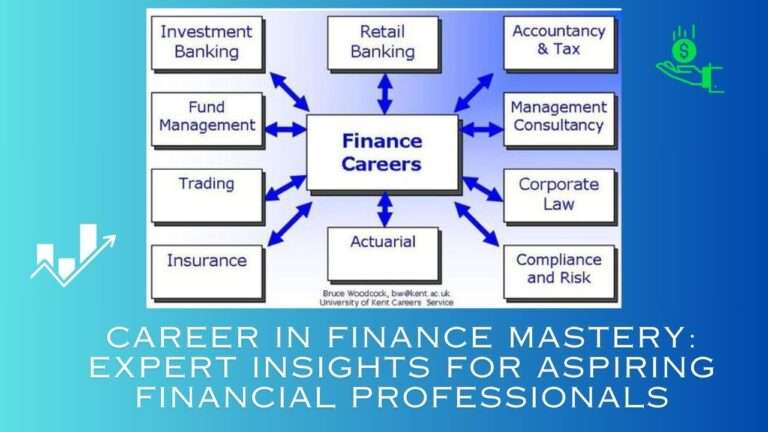The Future is AI: Why B.Tech Computer Science with AI is a Game-Changer
Did you know that a recent study by McKinsey Global Institute predicts that by 2030, AI could contribute up to $15.7 trillion to the global economy? That’s a mind-blowing number, and as a B.Tech Computer Science student, you have the chance to be at the forefront of this revolution. This program with a focus on AI isn’t just a degree – it’s a game-changer for your future career.
Imagine a world where doctors use AI to diagnose diseases with pinpoint accuracy, or self-driving cars navigate city streets with zero accidents. This isn’t science fiction anymore – it’s the future powered by Artificial Intelligence. Are you ready to be a part of it? A B.Tech Computer Science program with a focus on AI will equip you with the skills to build this future.
I. Introduction
- Briefly define Artificial Intelligence (AI) and its growing importance.
- Highlight the rise of AI-powered technologies across industries.
- Introduce the concept of B.Tech Computer Science with AI specialization.
II. How AI is Transforming B.Tech Computer Science Careers
- New career opportunities emerging in the field of AI (e.g., Machine Learning Engineer, AI Software Developer).
- Evolving skillsets required for B.Tech graduates to thrive in AI (e.g., data analysis, machine learning algorithms, deep learning).
- Increased demand and earning potential for AI specialists with a B.Tech background.
III. Decoding the B.Tech Computer Science Curriculum with AI Focus
- Core AI subjects included in B.Tech programs (e.g., Natural Language Processing, Computer Vision).
- Importance of practical learning through projects and internships in AI.
- Skills development in areas like programming languages (Python, R) and big data management.
IV. Building a Successful Career in AI with a B.Tech Degree
- Strategies for students to enhance their AI skillset (e.g., online courses, personal projects).
- Tips for landing an AI-focused job after B.Tech graduation (e.g., building a strong portfolio, networking with professionals).
- Future career paths for B.Tech graduates in the ever-evolving AI landscape.
V. Conclusion
- Reiterate the exciting opportunities for B.Tech Computer Science graduates in the AI revolution.
- Encourage students to explore the AI specialization and shape the future of technology.
In today’s fast-paced world, Artificial Intelligence (AI) stands at the forefront of technological advancement, revolutionizing industries across the globe. Its significance continues to grow exponentially, shaping the future of how we live and work. One of the most promising avenues within this realm is the specialization of B.Tech Computer Science with AI.
Highlight the rise of AI-powered technologies across industries. From facial recognition software streamlining security to chatbots providing 24/7 customer service, Artificial Intelligence (AI) is rapidly transforming how businesses operate. We see AI applications in finance (fraud detection), healthcare (medical diagnosis), manufacturing (predictive maintenance), and even entertainment (personalized recommendations). This pervasive influence of AI is creating a surge in demand for skilled professionals who can design, develop, and implement these intelligent systems.
Enter the B.Tech Computer Science program with an AI specialization. This specialized curriculum equips students with the in-depth knowledge and practical skills necessary to become leaders in the field of AI. By combining a strong foundation in computer science principles with targeted courses in areas like machine learning, deep learning, and natural language processing, this program prepares graduates to tackle the real-world challenges of developing and integrating AI solutions across various industries.
To Know More Unlocking the Future: Your Guide to Becoming an AI Engineer in 2023
II. How AI is Transforming B.Tech Computer Science Careers
A- New career opportunities emerging in the field of AI:
The rise of AI has opened a treasure trove of exciting career paths for B.Tech graduates with an AI specialization. Here are a few examples:
- Machine Learning Engineer: These specialists design, build, and deploy machine learning models, the workhorses behind many AI applications. They wrangle data, develop algorithms, and ensure models function effectively.
- AI Software Developer: These developers create the software that powers AI systems. They collaborate with engineers and scientists to translate AI concepts into real-world code, ensuring smooth integration with existing systems.
- Natural Language Processing Engineer (NLP Engineer): This specialized role focuses on enabling machines to understand and process human language. NLP engineers develop chatbots, sentiment analysis tools, and machine translation systems.
- Computer Vision Engineer: These experts develop algorithms that allow computers to “see” and interpret visual information. They create applications for facial recognition, object detection, and autonomous vehicles.
- Robotics Engineer: With AI playing an increasingly important role in robotics, B.Tech graduates with AI specialization can contribute to the design and development of intelligent robots capable of complex tasks.
This is just a glimpse of the diverse and ever-growing landscape of AI careers.
B – . Evolving skillsets required for B.Tech graduates to thrive in AI:
To excel in AI, B.Tech graduates need to cultivate a unique blend of technical and analytical skills. Here are some key areas:
- Data Analysis: AI thrives on data. Grasping statistical methods, data visualization techniques, and proficiency in tools like Python and R are crucial for extracting insights from massive datasets.
- Machine Learning Algorithms: Understanding core machine learning algorithms like linear regression, decision trees, and support vector machines is essential for building intelligent systems.
- Deep Learning: Deep learning, a subfield of AI inspired by the human brain, is powering advancements in areas like image recognition and natural language processing. Familiarity with deep learning frameworks like TensorFlow and PyTorch will be advantageous.
- Problem-Solving and Critical Thinking: AI projects often involve tackling complex, unforeseen challenges. Strong problem-solving skills and the ability to think critically are essential for navigating these complexities.
- Software Development: A solid foundation in software development principles and programming languages like Python and C++ allows graduates to translate AI concepts into working code.
C- . Increased demand and earning potential for AI specialists with a B.Tech background:
The demand for skilled AI professionals is skyrocketing across industries. This translates to a promising job market for B.Tech graduates with an AI specialization.
- McKinsey Global Institute: Their report “https://www.mckinsey.com/mgi/overview” suggests that by 2030, AI could create up to 133 million new jobs globally. While the report doesn’t provide specific figures for 2023-2024, the overall trend suggests significant growth.
- World Economic Forum: The “https://www.weforum.org/publications/the-future-of-jobs-report-2023/” doesn’t provide specific growth figures but highlights the ongoing transformation driven by AI. Their focus is on broader trends impacting the labor market, but it reinforces the idea that AI is creating new opportunities.
Thus credible insights shows that the job market for AI specialists is expected to grow significantly in the coming years. This increased demand is reflected in competitive salaries. AI specialists with a B.Tech background can command higher earning potential compared to traditional computer science graduates.
III – Decoding the B.Tech Computer Science Curriculum with AI Focus
B.Tech Computer Science programs with an AI specialization offer a unique curriculum that blends the core foundations of computer science with advanced topics in Artificial Intelligence. This equips graduates with the knowledge and skills to tackle real-world AI challenges. Here’s a breakdown of key elements:
1. Core AI Subjects:
- Machine Learning: This foundational course explores algorithms that enable machines to learn from data without explicit programming. Students delve into concepts like supervised learning, unsupervised learning, and reinforcement learning.
- Deep Learning: Building upon machine learning, this course dives into artificial neural networks, a powerful approach inspired by the human brain. Students learn about architectures like convolutional neural networks (CNNs) for image recognition and recurrent neural networks (RNNs) for natural language processing.
- Natural Language Processing (NLP): This specialized area focuses on how computers understand and process human language. Students learn techniques for tasks like sentiment analysis, machine translation, and chatbot development.
- Computer Vision: This course explores how computers can “see” and interpret visual information. Students learn about image processing, object detection, and applications in areas like autonomous vehicles and facial recognition.
- Knowledge Representation and Reasoning: This course examines how AI systems can represent and reason about knowledge in the real world. Students learn about logic, ontologies, and reasoning engines.
- Robotics: Integrating AI with robotics allows for the creation of intelligent machines. This course may cover topics like robot kinematics, control systems, and path planning with AI integration.

These are just some examples, and the specific subjects offered may vary depending on the university.
2. Importance of Practical Learning through Projects and Internships:
The B.Tech curriculum with an AI focus goes beyond theory. Hands-on experience is crucial for developing the practical skills needed in the field. Here’s how:
- Projects: Students work on individual or team projects throughout the program, applying their learned concepts to real-world AI problems. This allows them to experiment with datasets, build AI models, and analyze results.
- Internships: Many B.Tech programs encourage or even require internships focused on AI. These internships provide invaluable real-world experience working on cutting-edge AI projects at companies and research institutions. Students gain exposure to industry practices, collaborate with experienced professionals, and refine their problem-solving skills in a professional setting.
3. Skills Development in Areas Like Programming Languages (Python, R) and Big Data Management:
To effectively work in AI, graduates need a strong foundation in specific technical skills:
- Programming Languages: Python is a dominant force in AI. Students learn Python libraries like NumPy, pandas, and scikit-learn for data manipulation, machine learning algorithms, and scientific computing. R is another popular language used for statistical analysis and data visualization.
- Big Data Management: As AI often deals with massive amounts of data, understanding big data management tools and frameworks like Hadoop and Spark becomes crucial. Students learn how to store, process, and analyze large datasets efficiently.
By mastering these skills in conjunction with AI concepts, B.Tech graduates with an AI specialization are well-positioned for success in this rapidly evolving field.
IV – Building a Successful Career in AI with a B.Tech Degree
A B.Tech degree with an AI specialization equips you with a powerful foundation, but building a successful career in AI requires proactive steps. Here’s how:
1. Strategies for Students to Enhance Their AI Skillset:
- Online Courses: Numerous online platforms offer high-quality AI courses from leading universities and industry experts. Platforms like Coursera, edX, and Udacity provide in-depth training on specific AI topics like deep learning or natural language processing.
- Personal Projects: Solidify your learning by undertaking personal projects. Choose a topic that interests you and work through the entire AI development lifecycle, from data collection to model deployment. Showcase these projects on platforms like GitHub to demonstrate your skills and problem-solving abilities.
- Open Source Contribution: The AI community thrives on open-source projects. Contributing code or documentation to these projects allows you to learn from experienced developers, gain practical experience with real-world codebases, and build a reputation within the AI community.
- Hackathons and Competitions: Participation in AI-focused hackathons and competitions provides an opportunity to test your skills under pressure, collaborate with other aspiring professionals, and network with industry representatives.
2. Tips for Landing an AI-Focused Job After B.Tech Graduation:
- Build a Strong Portfolio: Compile your projects, internship experiences, and relevant coursework into a compelling portfolio that showcases your expertise. Include project descriptions, code samples, and visualizations of your results.
- Network with Professionals: Connect with professionals working in AI through online communities, professional networking sites, or attending industry conferences. These interactions can provide valuable career insights and potentially lead to job opportunities.
- Refine Your Resume and Tailor it for AI Roles: Highlight your AI skills and relevant coursework on your resume, ensuring they align with the specific requirements of AI-focused job descriptions. Tailor your resume for each position, emphasizing relevant projects and experiences that showcase your suitability for the role.
- Prepare for Technical Interviews: AI job interviews often involve technical assessments. Brush up on your coding skills and prepare to discuss your understanding of AI concepts and algorithms. Practice solving coding challenges and anticipate AI-related questions that may be asked during the interview.
3. Future Career Paths for B.Tech Graduates in the Ever-Evolving AI Landscape:
The AI landscape is constantly evolving, offering a diverse range of career paths for B.Tech graduates. Here are some promising options:
- Machine Learning Engineer: Design, build, and deploy machine learning models for various applications.
- AI Software Developer: Create software that powers AI systems, translating concepts into real-world code.
- Data Scientist: Analyze vast amounts of data to extract insights and develop AI-powered solutions.
- Computer Vision Engineer: Develop algorithms that enable computers to interpret visual information and build applications like autonomous vehicles and facial recognition systems.
- Natural Language Processing Engineer: Build systems that enable machines to understand and process human language, with applications in areas like chatbots and machine translation.
- Robotics Engineer: Integrate AI with robotics to create intelligent machines capable of complex tasks in various industries.
- AI Research Scientist: Conduct research in cutting-edge areas of AI and contribute to the advancement of the field.
By staying updated with the latest trends and continuously honing your skills, you’ll be well-positioned to navigate the exciting and ever-evolving world of AI with a B.Tech degree.
V – . Conclusion: Own Your Future in the AI Revolution!
The world of Artificial Intelligence is booming, and B.Tech Computer Science graduates with an AI specialization are in high demand. Don’t just be a bystander in this revolution – take charge and become a leader in shaping the future of technology!
Imagine yourself:
- Building the next groundbreaking AI application: Just like Andrew Ng, a pioneer in deep learning, who co-founded Landing AI, a company developing AI-powered self-driving car technology. Your B.Tech degree and AI expertise could lead you to create the next revolutionary AI tool that changes an industry.
- Cracking the code on complex real-world challenges: Companies like Netflix and Amazon heavily utilize AI for personalized recommendations. B.Tech graduates with AI skills are the masterminds behind these systems, constantly innovating and improving the user experience. You could be the one to develop the next AI-powered solution that tackles a pressing global issue.
- Working alongside the brightest minds in the field: Top tech companies and research institutions are actively recruiting AI talent. With a B.Tech degree and an AI specialization, you’ll have the opportunity to collaborate with brilliant minds pushing the boundaries of what’s possible with AI.
The possibilities are truly endless! Explore the exciting world of AI specialization within your B.Tech program. Take advantage of online courses, embark on personal projects, and network with professionals in the field. By actively developing your AI skillset, you’ll be well-equipped to not only secure a rewarding career but also become a key player in shaping the future of technology powered by AI.
FAQ :- Why B.Tech Computer Science with AI ?
Q 1 :- What is the significance of B.Tech Computer Science with AI specialization?
B.Tech Computer Science with AI specialization equips students with the skills to navigate the evolving landscape of technology, particularly in AI-driven industries.
Q 2 :- What career paths are available for B.Tech graduates focusing on AI?
B.Tech graduates specializing in AI can pursue diverse roles such as Machine Learning Engineer, AI Research Scientist, and Data Scientist, among others.
Q 3 :- How can students enhance their AI skillset outside of the classroom?
Engaging in online courses, undertaking personal projects, and participating in hackathons are effective ways for students to augment their AI skillset.
Q 4 :- What role does practical learning play in B.Tech Computer Science with AI?
Practical learning through projects and internships is essential for B.Tech students to apply theoretical knowledge in real-world AI applications.
Q 5 :- What is the future outlook for B.Tech graduates in the AI landscape?
The demand for AI specialists is projected to grow significantly, offering ample opportunities for B.Tech graduates to thrive and innovate in this dynamic field.













One Comment